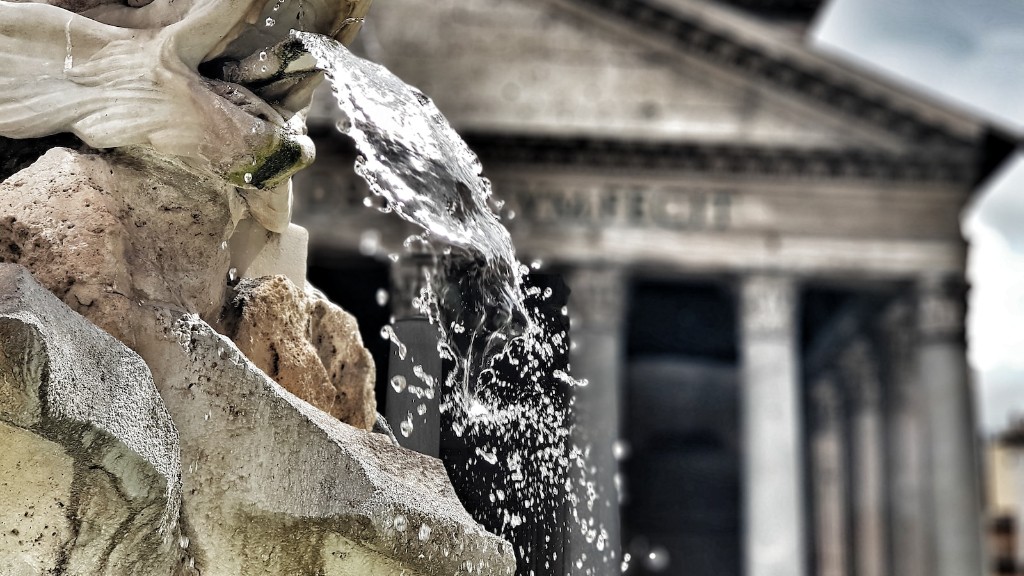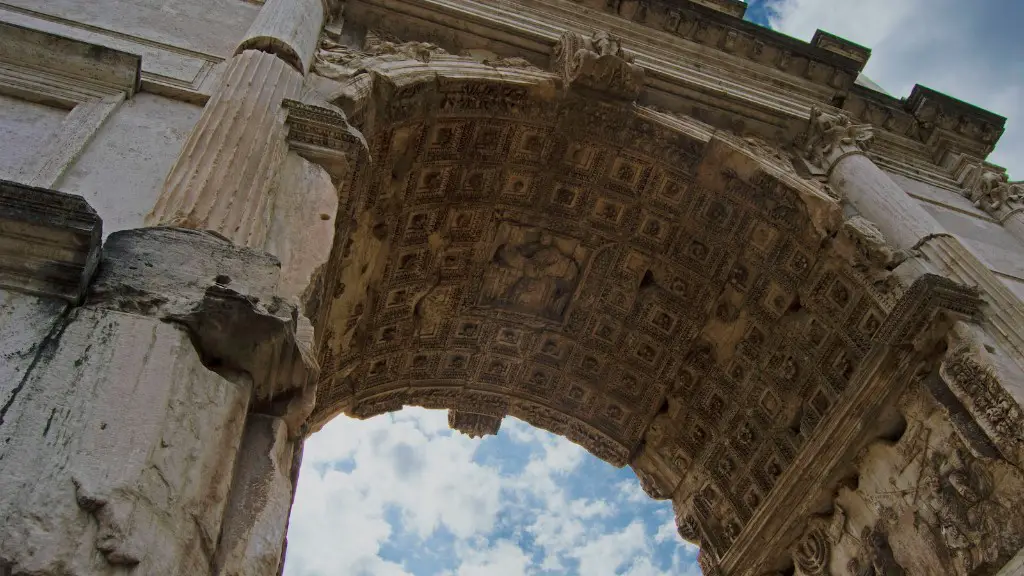The Roman empire was one of the most powerful empires in all of human history. At the height of its power, the Roman empire controlled nearly the entire Mediterranean basin. One of the key aspects of Roman power was its religion. The Roman state religion was polytheistic, meaning that it recognized and worshipped multiple gods and goddesses. The most important gods and goddesses in the Roman pantheon were Jupiter, Juno, and Minerva. Jupiter was the king of the gods, and he presided over the domains of weather and war. Juno was the queen of the gods, and she was the goddess of marriage and childbirth. Minerva was the goddess of wisdom and warfare.
The ancient Romans worshiped a large number of gods and goddesses. The most popular and well-known of these were the Olympian gods, who were similar to the gods of Greek mythology. Other important Roman deities include Juno, Mercury, and Vulcan.
Who are the 7 major Roman gods?
The ancient Romans believed in a pantheon of gods and goddesses who ruled over different aspects of their lives. These gods and goddesses gave the ancient Romans the confidence to conquer, succeed, and prosper. Some of the most important Roman gods and goddesses include Jupiter/Zeus (god of the sky), Juno/Hera (goddess of marriage), Neptune/Poseidon (god of the sea), Minerva/Athena (goddess of wisdom), Mars/Ares (god of war), Venus/Aphrodite (goddess of love), Apollo/Apollo (god of the sun), and Diana/Artemis (goddess of the moon).
The twelve gods and goddesses of the Roman pantheon were known as the Deii Consentes. They were the most important group of deities in Roman religion and culture. The twelve gods and goddesses represented the major forces and aspects of Roman life. They were worshipped as a group, and each god and goddess had their own specific cult and temples.
What 12 gods did the Romans worship
The Roman Gods were a pantheon of gods and goddesses who ruled over different aspects of Roman life. The 12 most important Roman Gods were: Jupiter, Juno, Mars, Mercury, Neptune, Venus, Apollo, Diana, Minerva, Ceres, Vulcan, and Vesta. Each god or goddess held dominion over a different area of Roman life, such as war, love, wisdom, or agriculture. The Roman people would pray to the god or goddess who oversaw the area they needed help with. For example, if they were going into battle, they would pray to Mars, the god of war.
Roman religion was polytheistic from the beginning. From an initial array of gods and spirits, Rome added to this collection to include both Greek gods as well as a number of foreign cults. This made the religion more complex, but also more inclusive of different cultures and beliefs.
Who was the 13th Roman god?
Janus Bifrons is a statue representing the Roman god Janus, who is usually depicted as having two faces. This statue is located in the Vatican Museums. Janus is the god of beginnings and endings, and is often invoked as a protector against evil.
Zeus is the king of the Olympian gods and god of thunder and lightning. He is also the god of law and order. Mount Olympus is his home.
Who is the oldest god?
The Mesha Stele is a black stone monument that was erected by King Mesha of Moab in 840 BCE. The Stele contains the earliest known reference to the Israelite god Yahweh. The reference to Yahweh is found in line 31 of the Stele, which reads: “Yahweh of Samaria and his Asherah.” This is the only known reference to Yahweh in any Moabite inscription. The Stele was discovered in 1868 CE by Frederick J. Klein, a German missionary, and is now on display in the Louvre Museum in Paris.
It is interesting to note that most ancient cultures had different names and even different stories about the same gods. This is likely due to the fact that each culture had its own unique way of looking at the world and interpreting the divine. So as the Romans conquered the Greeks they adopted Greek Mythology and replaced the gods’ names with traditional Roman gods’ names. This helped to solidify Roman power by creating a sense of continuity between the two cultures.
Who was the first Roman god
Some scholars believe that Janus was the god of all beginnings, and that his association with doorways is derivative. He was invoked as the first of any gods in regular liturgies, and the beginning of the day, month, and year were sacred to him. Janus was also associated with agricultural beginnings, and was thus an important figure in early Roman society.
In defiance of a government ban, the ancient Greek god Zeus has been the object of pagan worship at an ancient temple in the heart of Athens. It was the first known ceremony of its kind at the 1,800-year-old temple of Olympian Zeus since the ancient Greek religion was outlawed by the Roman empire in the late 4th century. The worship of Zeus is a direct violation of the law, but the participants believe that the ancient gods are more important than the laws of man.
Is Zeus Greek or Roman?
Zeus is the chief deity of the ancient Greek pantheon, a sky and weather god who was identical with the Roman god Jupiter. His name clearly comes from that of the sky god Dyaus of the ancient Hindu Rigveda. Zeus was the son of Cronus and Rhea, and the husband of Hera. He was the father of Ares, Athena, Apollo, Artemis, Dionysus, Hades, Hermes, Pan, and Zeus. Zeus was the supreme ruler of Mount Olympus, and he resided in a golden palace on the top of the mountain. He was also the god of the air, the sky, and the weather.
Greek and Roman mythology share many of the same gods and goddesses, but most often the names are different. It can be difficult to keep straight who is who when referring to them with either their Greek or Roman name.
Why did Romans stop believing in gods
The pantheon of gods was thought to include the current emperor after the fall of the Roman republic. This meant that it was considered a capital offense not to acknowledge, accept, or honor his divinity. Those who did not do so were punishable by death.
Jupiter was the main god in Roman culture and was responsible for oversee all aspects of life. He was thought to have originated from the Greek god Zeus. Juno was the goddess of marriage and childbirth and was thought to be the protector of women. Minerva was the goddess of wisdom and war and was often depicted with an owl.
Did Romans worship Hades?
The Roman Orcus became the Greek Hades with the introduction of Greek mythology. Hades was the god of the underworld in Greek mythology. He was the son of Cronus and Rhea. Hades was the brother of Zeus and Poseidon. He was also the husband of Persephone. Hades was the ruler of the underworld.
The Roman emperors mentioned in the question were some of the most ruthless and tyrannical rulers in history. They were known for their brutality, their madcap antics, and their complete disregard for human life. These emperors were not just feared by their subjects, but by the entire world.
Final Words
The ancient Romans worshiped a wide variety of gods and goddess. The most prominent gods were Jupiter, Juno, and Minerva. However, the Romans also worshiped a number of other gods and goddess including Apollo, Ceres, Mars, Mercury, Neptune, and Venus.
The ancient Romans worshiped a pantheon of gods and goddess. The most famous of these are Jupiter, Juno, and Minerva. However, there are many other lesser-known deities that the Romans worshiped. Each god or goddess had their own unique role and function in the Roman world.





